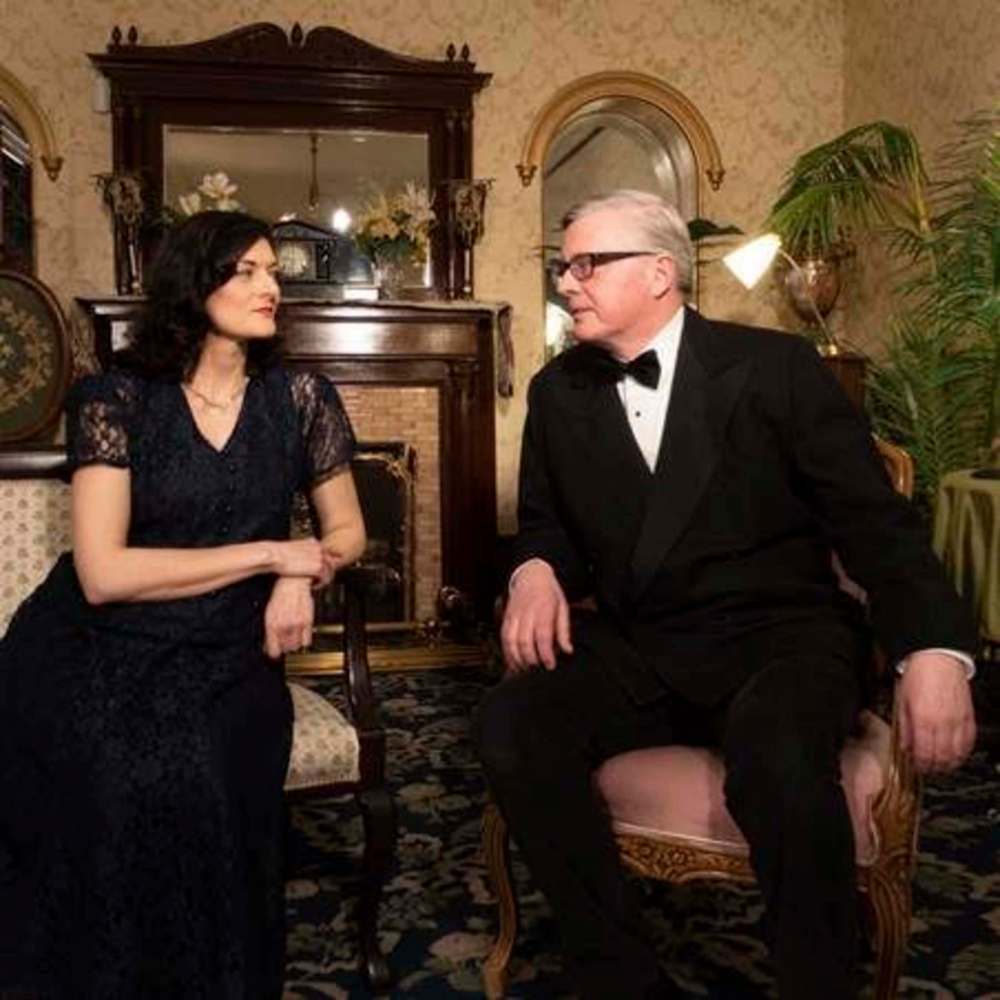Drama done two ways elicits differing responses
Unique retellings prove playwright's longevity, relevance
Advertisement
Read this article for free:
or
Already have an account? Log in here »
To continue reading, please subscribe:
Monthly Digital Subscription
$0 for the first 4 weeks*
- Enjoy unlimited reading on winnipegfreepress.com
- Read the E-Edition, our digital replica newspaper
- Access News Break, our award-winning app
- Play interactive puzzles
*No charge for 4 weeks then price increases to the regular rate of $19.00 plus GST every four weeks. Offer available to new and qualified returning subscribers only. Cancel any time.
Monthly Digital Subscription
$4.75/week*
- Enjoy unlimited reading on winnipegfreepress.com
- Read the E-Edition, our digital replica newspaper
- Access News Break, our award-winning app
- Play interactive puzzles
*Billed as $19 plus GST every four weeks. Cancel any time.
To continue reading, please subscribe:
Add Free Press access to your Brandon Sun subscription for only an additional
$1 for the first 4 weeks*
*Your next subscription payment will increase by $1.00 and you will be charged $16.99 plus GST for four weeks. After four weeks, your payment will increase to $23.99 plus GST every four weeks.
Read unlimited articles for free today:
or
Already have an account? Log in here »
Hey there, time traveller!
This article was published 05/02/2019 (2475 days ago), so information in it may no longer be current.
Dalnavert, the historic 1895 mansion, is the perfect setting for Echo Theatre’s production of Henrik Ibsen’s Hedda Gabler, a version set in the 1950s by Winnipeg translator/playwright Per Brask.
The fussy, flower-filled formal parlour is an apt representation of the life newlywed Hedda (Charlene Van Buekenhout) finds herself trapped in as she returns from her six-month honeymoon with Jorgen Tesman (Ian Bastin), who spent much of their romantic holiday doing research.
In this iconic role, Van Buekenhout delivers a wonderful, complicated performance. Casually cruel and seemingly blasé, her Hedda’s a beautiful mean girl who presumed she’d end up with more than a doting doofus of a husband and stultifying life in a mausoleum of a mansion. (The actress is also pregnant, which adds a twist to the oft-debated notion that Hedda is with child but in denial.)

When her former schoolmate Thea Elvsted (Alissa Watson) brings word that the dissipated Eilert Lovborg (Tom Keenan) — an academic rival of Jorgen’s and a former dalliance of Hedda’s — is back in town, you can see the scheming wheels begin turning in her head, though it’s not clear what her endgame is, other than using what power she has to wreak havoc and amuse herself.
The rest of the local cast — directed by Ray Strachan — ably matches Van Buekenhout’s performance. Ross McMillan portrays Judge Brack with an avuncular charm that oozes lasciviousness. Watson’s nervous, lovestruck Thea is a delight to watch, her face lighting up when she sees the dissipated Eilert, whom Keenan gives a desperate sadness.
It’s a vicious, witty 95-minute (no intermission) production that shows why the ambiguous Hedda continues to inspire analysis and interpretation.
● ● ●
Hedda, Reimagined, by Winnipeg playwright/director Frances Koncan, is an intriguing, ambitious experiment that falls short.
The hour-long work is modelled on New York sensation Sleep No More, a site-specific immersive adaptation of Macbeth that allows the audience to roam freely through rooms of a “hotel,” where actors perform scenes, mostly in silence but sometimes pulling people aside to interact with them. However, the company should give better notice of what immersive theatre entails — going up and down stairs, interacting with actors — in the IbsenFest program. For audience members with limited mobility, it’s almost pointless to attend, and those who despise the idea of being part of the show will not enjoy it; nor will those who don’t know the plot of Hedda Gabler, however lightly this production touches on it.
The actors — Melanee Deschambeault, Kristina Guevarra, George Hudson and Chris Sousa — do provide many striking moments; there’s a haunted aspect to the dimly lit house that gives added significance to their actions. If they choose to include you, it feels oddly important.

However, so little of consequence seems to be taking place, there’s often the feeling that you’re in the wrong room at the wrong time and that the real action is elsewhere. (There’s no way to know if you’re wrong without attending multiple performances.)
At certain points, the audience is herded back to the parlour for repeated ensemble scenes, including one set to the eerie Laura’s Theme from Twin Peaks on a loop (the provided list of songs includes quotes from that David Lynch show, perhaps indicating a kinship with the second iteration’s tonal departure from the original).
There’s a lot going on here, but it fails to coalesce into anything that feels meaningful or says something new about Hedda Gabler.
jill.wilson@freepress.mb.caTwitter: @dedaumier

Jill Wilson is the editor of the Arts & Life section. A born and bred Winnipegger, she graduated from the University of Winnipeg and worked at Stylus magazine, the Winnipeg Sun and Uptown before joining the Free Press in 2003. Read more about Jill.
Jill oversees the team that publishes news and analysis about art, entertainment and culture in Manitoba. It’s part of the Free Press‘s tradition, since 1872, of producing reliable independent journalism. Read more about Free Press’s history and mandate, and learn how our newsroom operates.
Our newsroom depends on a growing audience of readers to power our journalism. If you are not a paid reader, please consider becoming a subscriber.
Our newsroom depends on its audience of readers to power our journalism. Thank you for your support.


